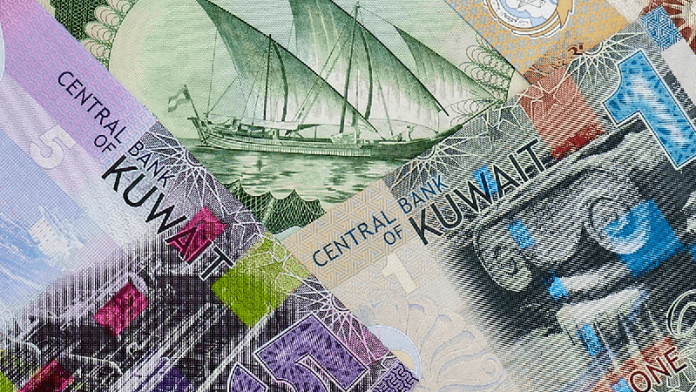The Central Bank of Kuwait has informed banks that they must hire a Kuwaiti director to manage the Anti-Money Laundering and Terrorist Financing Unit, emphasizing the importance of localizing sensitive banking jobs, including senior and middle management, and making the necessary efforts to achieve this.
A local Arabic daily quoting sources pointed out that the Central Bank was initially pushing the banks to adjust their situations in this regard, but was lenient enough to extend the deadline, as it is likely that to achieve this target it will not go beyond 2023, stressing that the appointment of non-Kuwaitis in senior positions in general should be for a limited period, and it should be linked to training Kuwaitis to fill these jobs within the framework of career development plans and the required replacement.
Some banks responded saying they have already nationalized this job, while others responded that they are working on it, noting that the Central Bank’s moves to localize sensitive jobs include reviewing the banks’ plans individually to ensure that they make the required job succession.
As a banker, the director of “money laundering” is the second most important job that the CBK obliges banks to hire a Kuwaiti, after the position of director of the strategic planning and follow-up unit, which was approved by the supervisory instructions issued in January 2020, related to the establishment of an independent sector to support and follow up the framework related to the strategic plan of the banks. Note that all banks have already fulfilled this requirement, while the eye is currently open to the risk manager as well.
In general, the primary role of the Anti-Money Laundering and Terrorist Financing Unit is to ensure that all transfers set at the supervisory ceiling are in accordance with laws and regulations, as well as in compliance with the bank’s internal policies and regulations.
It is noteworthy that in each department, an independent unit is assigned to monitor the implementation of the bank’s anti-money laundering policy, and is directly responsible to the bank’s chairman to implement the bank’s policies and procedures in combating money laundering and terrorist financing.
The sources pointed out that the Central Bank’s request to Kuwaitize the position of director of the “money laundering” unit in banks comes within its plans aimed at filling banking jobs, specifically from the middle and leading executive departments by Kuwaitis.
Banking sources do not hide that some banks face great challenges in Kuwaitizing some jobs, especially the specialized ones, including the director of the “money laundering” unit, due to the increasing demand for such jobs in exchange for what is available, which pushes them to fierce competition among them to meet the requirements, and this may include courting some talents in other banks with additional financial benefits to persuade them to join their banks.
Since April 2021, the Central Bank has requested the banks to provide it with a plan approved by the boards of directors showing a clear path to reach Kuwaitization to at least 70 percent in the senior and middle management, and not only at the level of the bank as a whole, in a manner that clarifies the path it will follow to achieve this replacement within the framework of no later than the end of 2023.
The Central Bank’s move in this direction is part of its strategic endeavor to enhance the presence of national competencies in the banking sector at all functional levels, and its constant interest in developing career opportunities for Kuwaiti cadres, while giving national cadres priority in filling leadership positions, whether technical or administrative, by taking measures to train them and qualifying them to fill those positions.

















